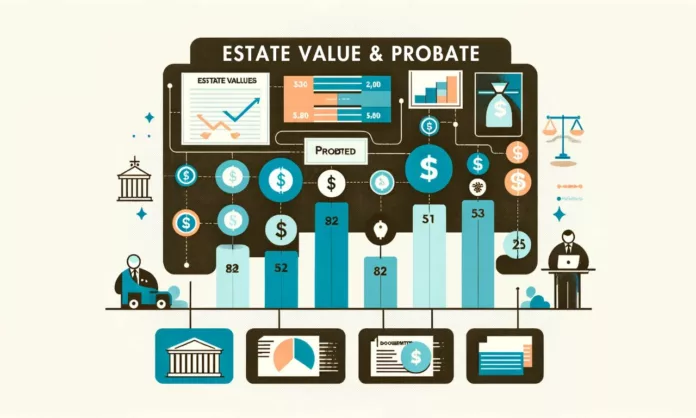Probate serves as a vital legal procedure for managing the estate of someone who has passed away. It involves various steps, including collecting the estate’s assets, paying off debts and taxes, and distributing the remaining assets to beneficiaries or heirs. This process ensures the decedent’s final affairs are properly settled, and their assets are transferred appropriately. The probate process can vary significantly depending on the value of the estate and the state in which it is administered.
Table of Contents
Estate Value Threshold for Probate
The value threshold for an estate to go through probate varies by state. Generally, real property of any value or assets with a net worth over $100,000 typically requires probate. However, this threshold is not uniform across all states. For example, in Texas, any estate with a net value of over $75,000 must undergo probate, excluding certain assets like life insurance policies or retirement accounts with named beneficiaries.
In broader terms, the minimum value for estates to require full probate can range anywhere from $10,000 to $275,000, depending on state laws. Some states have lower thresholds, such as $20,000, while others, like California, allow for estates up to $150,000 to qualify for simplified probate.
Small Estate Affidavits: An Alternative to Probate
In certain circumstances, smaller estates can avoid the full probate process through a small estate affidavit. This legal document is used for collecting personal property when the entire value of the estate is under a specific threshold (often $100,000) and there is no real property involved.
Informal and Formal Probate Processes
The probate process can be categorized into two main types: informal and formal probate. Informal probate is typically less time-consuming and less expensive, chosen when all interested parties agree on the appointment of a personal representative and the distribution of the estate. Conversely, formal probate is required when there is disagreement or conflict among interested parties, such as contested issues over the validity of the will, claims from creditors, or disagreements among heirs.
The choice between informal and formal probate depends on the specific circumstances and the level of agreement among the parties involved. It’s advisable to consult with a probate attorney to determine the most appropriate approach.
The Role of a Personal Representative
A personal representative plays a vital role in the probate process. They are responsible for gathering and inventorying estate assets, contacting heirs and creditors, paying taxes, and distributing the remaining proceeds to the rightful beneficiaries. The appointment of a personal representative is a critical step in ensuring the probate process is carried out smoothly and efficiently.
Avoiding Probate Through Estate Planning
Estate planning is key to potentially avoiding the probate process. By setting up trusts or establishing joint ownership of assets, individuals can bypass probate and streamline the transfer of their property to beneficiaries. These methods can save time, reduce costs, and offer greater privacy for the family. Consulting with a probate attorney is recommended to navigate the probate process and explore options for avoiding it. They can provide guidance on estate planning strategies tailored to specific circumstances, ensuring a seamless transfer of assets to loved ones.
In conclusion, understanding the value threshold for probate is essential for planning and settling an estate. The probate process provides a legal framework for the proper distribution of assets, but its requirements and complexities vary significantly by state and the specific circumstances of the estate. Proper estate planning can help in managing or even avoiding the probate process, ensuring that the final wishes of the deceased are respected and fulfilled.

